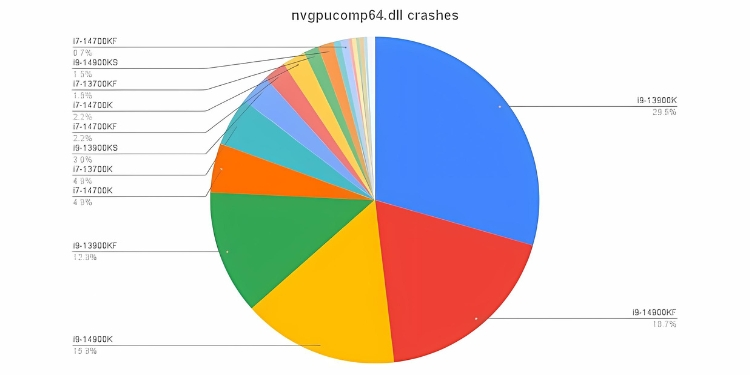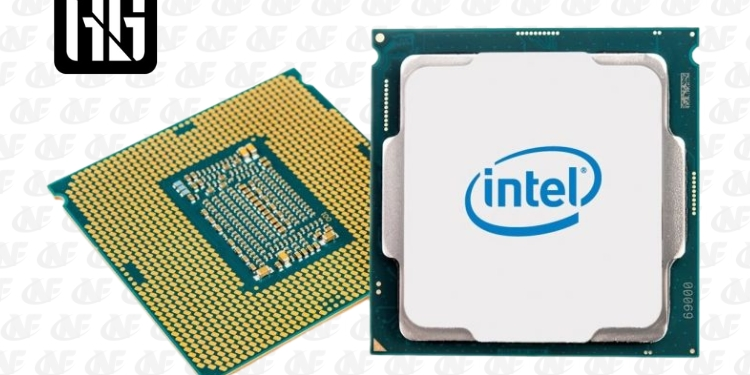Alderon Games advises users to avoid Intel’s 13th and 14th Gen CPUs due to their high failure rate.
According to several game developers and server providers, Intel’s latest generation of CPUs has been experiencing major stability issues. Let’s examine what’s been going on.
A Wave of Problems with Intel’s 13th and 14th Gen CPUs
For months, people have been discussing issues with Intel’s 13th-gen Raptor Lake and 14th-gen Raptor Lake Refresh chips. Gamers and servers use these chips, and they have been causing problems, such as crashing, blue screens showing, restarting unexpectedly, and other strange things happening. These issues have been frustrating users.
At first, Intel said the problems were caused by motherboard settings that make the chips go fast, such as overclocking the chips. But now, there may be more severe problems inside the Intel CPUs. People have found this based on what they have discovered.
Game Studio Alderon Speaks Out
One of the most vocal critics of Intel’s latest CPUs has been Alderon Games, an Australian indie game studio behind the multiplayer game Path of Titans. Founder Matthew Cassells wrote a strongly worded blog post accusing Intel of “selling defective 13th- and 14th-gen CPUs.”
According to Cassells, Alderon has encountered “significant problems with Intel CPU stability” that have persisted despite BIOS and firmware updates.
Some key issues Alderon has experienced include:
- Thousands of crashes were reported by players using 13th and 14th gen Intel chips in-game.
- Servers constantly crash and go down due to the unreliability of Intel CPUs powering them.
- Developers face frequent stability problems when building the game on systems with these CPUs.
- Memory corruption damages important SSD data.
- Tests unrelated to Path of Titans, like decompression and benchmarks, also fail unexpectedly on these CPUs.
Cassells says that Intel CPUs first work smoothly but then start to get worse over time. In 3-4 months, the chips completely stop working. In tests by Alderon itself, almost all of the chips failed – a failure rate of nearly 100%.
Alderon became very upset. They took decisive action to fix the problem. They moved all their servers to AMD chips instead of Intel to avoid more issues. Cassells warned people who run Path of Titans game servers not to use 13th – and 14th-generation Intel chips. He also cautioned those selling game servers about these chips’ significant reliability issues.
Other Game Studios Face Similar Difficulties
Alderon Games is one of many problems that are being faced. Popular games like Fortnite and Warframe have also reported issues with I Intel’s 13th & 14th Gen CPUs.
The Warframe developers saw that 97% of the latest game crashes only happened with Intel’s newest chips. Epic Games changed the Fortnite guides to tell people to use “Intel Fail Safe” mode. This helps temporarily but not for the main problem.
Digital Extremes, the Canadian company that made Warframe, also identified the problem. They said most stability crashes linked to Nvidia graphics cards were caused by faults in Intel’s newest Raptor Lake CPUs. They saw this using information collected, not issues with graphics cards or software like others thought.

Almost 98% of crashes have occurred in these Intel CPUs.
Server Hosts Make Switch as Well
It’s not only game studios that are facing issues. Big companies that run game servers as a business have also started leaving Intel chips behind. This is because of the stability problems that prevent 13th—and 14th-generation Intel CPUs from working well. Constant server crashes cost these companies money, and they lose players and customers.
As Alderon showed, switching to AMD Ryzen or EPYC CPUs significantly reduces crashes compared to Intel chips. AMD chips are much more reliable, so it’s an easy choice for both game studios and server companies to use AMD instead.
Investigating the Root Cause
YouTuber Gamers Nexus and Level1Techs dug deeper into the performance of 13th-gen chips on various motherboards. Level 1’s Wendell found that some 13th-gen “KS” bin samples were more prone to faults and as high as 50% defective straight from Intel!
Turning off individual performance cores also helped some systems stabilize, showing that specific CPU clusters may be faulty. However, issues persist with others, even with stock settings on basic workstation motherboards.
This implies that the problems extend beyond overly aggressive motherboard settings. Something flawed seems to exist within some of Intel’s 13th—and 14th-generation desktop CPUs.
What is Intel Saying?
Intel needs to provide clear and comprehensive responses to the significant issues many people are facing. They have acknowledged the reports of stability problems with 13th and 14th-generation desktop chips, but more comprehensive responses are needed. Intel’s advice to use the newest BIOS updates is not always effective in resolving the issues.
Users are increasingly upset with Intel’s response. Instead of admitting the potential faults in their chips, Intel denies refund requests, passing the responsibility to others. Intel must take responsibility for the widespread reliability problems and make robust fixes to regain user trust.
The Damage to Intel’s Reputation
This saga plays out inopportunely just before AMD is poised to reveal its next-gen Ryzen 7000 CPUs. Incidents like Alderon’s public accusations are a major reputational blow. Losing the trust of game developers, server hosts, and communities casts a severe shadow over Intel’s branding.
If left unresolved, stability concerns risk impacting consumer perception and sales of the entire 13th and 14th generation lineups for a long time. If consumers gravitate towards AMD’s alternatives instead, billions in revenue will be at stake.
Intel must also recognize the technical and customer service aspects. The company must win back enthusiasts and professional users who feel let down by substantial product flaws that have gone unacknowledged for many months.
In Summary
Many credible reports clearly show that Intel’s latest desktop CPUs are unreliable. This is true for gaming servers, which often have outages, and game studios, which face buggy development conditions. It hurts a lot to see Intel chips not working well. Choosing AMD is logical for many as they switch to it.
Early on, Intel did not take the issues seriously. However, evidence shows that the faults are inside the chips, not just in the motherboard settings. Problems affect chips used in primary workstations to the best “KS” chips. The issues are more than a small problem.
If Intel does not fix stability problems soon, how people see their brands will suffer badly. This is especially true for communities that need reliable chips even for the best performance. It will be harder for Intel to regain trust than just technical solutions. But starting with honesty will help Intel get on the right path again.
Only time will tell if upcoming BIOS updates prove Intel right or if more significant changes are still needed. Gamers and server users will both watch Intel closely. They want to see how the big company answers all the criticism about defects in its latest desktop CPUs. Intel’s next steps are essential for its future brand direction.



















